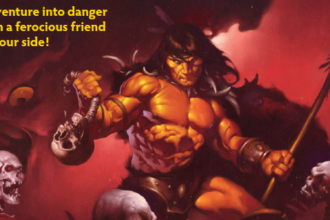A Lich for Every Class: The Paths to Transcendence

This is Part 1 of a Multipart Series | Part 2
Inspired by this post on the fabulous Goblin Punch blog about an immortal, evil, ‘lichlike’ path available for fighters, I’ve been thinking about Liches and the ‘other class’ equivalents to such things. I’ve always liked the idea that as an adventurer gains levels they slowly lose/supersede their humanity (elevanity? tieflinganity? you know what I mean). I’ve also always thought that liches slowly replace their essential humanity with a certain expression of magic, and that this is baked into the progression of certain wizards.
Most undeath is totally unrelated to class (zombiehood, ghostdom, vampirism, or ghoulification) but for liches it is the development of arcane magic that provides the path (and it might be why certain individuals choose the study wizardry in the first place). Moving forward, assuming that each class represents an equivalently valid ‘path to power’ what would each class giving up their humanity to increase/merge with their chosen power path look like?
What follows is an outline for some thoughts about a class specific ‘lich’ for the other classes: what parts of an individual’s essence would be given up, what would be gained, and some thoughts about how they fit into a game world. I should point out that none of these are by necessity evil (although the lich and the whisper tilt that way), though almost all transcend traditional notions of morality. Additionally, I think these might be a little unwieldy as character options (unless you have the right players) and might make better NPCs or enemies. Finally, if you were going to create statistics for these you could do ‘lesser’ versions as Pathfinder Archetypes or D&D 5th Edition specializations OR present them as epic, beyond level 20 prestige classes to really play on the characters becoming demigods.
The Imbued – The Path of the Fighter
As a fighter develops their craft, some experience a curious drift in their attention and sense of self. They don’t feel their skin so much as they feel the edge of their blade when it slips into an opponent’s throat. They don’t feel their heartbeat so much as they feel the ringing of their armor when it turns aside a blow. And so, over hundreds of battles -when the line between life and death thins- where the fighter’s attention turns so flows his soul.
A fighter following the Path of the Imbued will find his physical form slowly fading. But it’s of little matter, for his weapons and armor have never been lighter for them to wield or fallen more heavily upon their opponents. Eventually, the fighter’s body draws its last breath and turns to ash. But it matters not; for the fighter’s (now imbued’s) soul, consciousness, and *self* now resides in their beloved sword or bow or axe; and in the supernatural skill with which they wield such things.
And now, all they need is another to pick them up; a vessel to temporarily or permanently seize control of so they can fight and triumph throughout all eternity. Some of the finest armies in the world are led by ancient, imbued generals; their subordinates willingly taking up the arms or armor to channel the skill and tactical acumen of centuries old master strategists.
What’s Given Up A Body
What’s Gained Supernatural skill with weapons, extreme resistance to pain/damage (as the heart/soul/intelligence/will is located in the weapon itself rather than the ‘wielder’), limited ability to summon a ghostly form to wield the weapon is the host dies, telepathy, ability for the weapon to take on different qualities/abilities based on the imbued’s tremendous battle experience.
The Herald – The Path of the Cleric
All clerics wield the power of their chosen deity, and must ensure to appease and please their god. But for the Herald, this is not enough. They must become a perfect reflection of their divinity.
For a cleric to become a Herald they must spend years, decades, centuries modeling their every thought and deed after their god. Through magical alterations to their appearance (including -at times- race and gender) the would be Heralds push their forms ever closer to modeling the perfection of their chosen deity. The union they seek, when accomplished- transforms them into a perfect mirror or avatar for the presence of their god to be more fully realized on the mortal plane. At this point they can be worshiped as their god because -in the Herald’s mind- there is no longer any difference.
Heralds looks, talk, and act like their god and while they still only can wield a fraction of their god’s full might this is still far and away greater than what is possible to mortal clerics. They are functionally immortal (eventually regenerating from even titanic damage) and can only be truly killed by first desecrating/consecrating them away from being a perfect mirror of their divinity; tricking, coaxing, or forcing the Herald to take on some trapping of their mortal life which breaks their Heralddom and reverts them to being ‘nothing’ more than a supremely powerful (though mortal) cleric.
One would assume that Heralds are primary scourges of their god’s enemies but -in fact- the peaks of their wrath are saved by all they deem heretics, any who would shift a congregation’s image or understanding of the god away from the Herald’s own.
What’s Sacrificed: A Personality
What’s Gained: Immortality, knowledge and divine revelation from their god, 1st through 3rd Level Cleric Spells becoming spontaneous, unconscious transformation of the surrounding area in line with their god’s nature.
The Whisper – The Path of the Rogue
There are many tools the rogue uses to ply her trade: trickery, mastery of skills, misdirection, or knowing just where to sink the knife into the throat. But above all, rogues use the shadows. Rogues rely on being unseen (or seen incorrectly) and over the years learn to wear the darkness like a set of well tailored clothing; they learn to wear unseeing like a second skin. And by eventually merging with this unseeing they become something less and more than a woman; they become a whisper.
Whispers are semi-incorporeal beings who fade into and out of their flesh. They regularly shift into different identities (the disguises they used in their mortal life become manifest and fully realized once they step completely into the shadows by embracing the Path of the Whisper). They are nearly impossible to notice against their will, and if noticed will often be forgotten immediately. Whipsers usually engage in criminal enterprise or intrigue on a superhuman scale; where an ordinary metropolis may have a thieve’s guild of hundreds a single whisper might suffice to perpetrate a city’s worth of crime. They are rumored to create vast hordes of gold and magical items or information that rival the grandest known to dragonkind.
Whispers can only be killed (permanently) by first utilizing focused, unrelenting attention – trapping them in a bright room free of any shadows through which they could slip out.
What’s Given Up – The Ability to Easily Be Perceived/Appear as You Are
What’s Gained – Abilities to slide into and out of shadows, superhuman stealth, limited ability shape shadows into weapons and allies, incredible abilities at information gathering or spreading misinformation.
The Lich – The Path of the Wizard
Wizards know the truth of things; knowledge is the path to power. And of all studies, that of arcane magic is supreme as mastery of it eventually makes every other kind of knowledge superfluous. And the better the mind, the more knowledge can be held within it and the better that knowledge can be wielded.
Mastery of arcane magic however can not be accomplished through disembodied consciousness (many have tried); there must be senses for any kind of relatable mind to exist, there must be a body as an instrument to make the subtle gesticulations and articulations to shape a magical working. But a mortal body can be such a bother, full of such needless distractions: the beating of the heart and pumping of blood when the wizard wants nothing more than to read, the intake and elimination of gross organic matter, and the constant interruptions of that most noisome sense of all -scent- that sets even the most disciplined mind reeling when trying to study something as natural and as putrefaction or fascinating as arcane formula received by a madman and smeared onto a wall in excrement.
To truly free the mind of these quibbles, the only sensible course for the wizard is that of the lich. Those walking this path learn to slow their biorhythms until they’re eventually ready for them to stop. Their flesh becomes like the flesh of the dead, and they no longer draw their life force from something so base as digestion but rather from that inexhaustible well of sustaining power that the ignorant casually dismiss as ‘negative energy.’ They shed, dull their senses till all that’s left is hearing and eyesight particularly suited to piercing illusions and reading the most faded script.
And through it all, they craft their phylactery. The uninitiated, superstitious claim such things house the lich’s soul. Rather, the phylactery is merely the externalization and ‘backup’ of a wizard’s mind and arcane learning/spell book complete with magical instructions for how to regrow its body if it’s ever destroyed.
What’s Given Up: ‘Life,’ the Possibility of Sensual Pleasure
What’s Gained: Immortality, ‘Back Ups,’ Increased capacity to study/arcane power, immunities related to its undead status.
—
I’ve written the second part with four more classes and will be writing the remaining four.
- The Unbowed – The Path of the Barbarian
- The Gnarl – The Path of the Druid
- The Story – The Path of the Bard
- The Protrusion – The Path of the Warlock
- The Emptied – The Path of the Monk
- ? (some kind of alternate lich) – The Path of the Sorcerer
- ? – The Path of the Ranger
- ? – The Path of the Paladin
Anyway, what do you think? Could you see yourself playing one of these at your gaming table? Sound off in the comments.



